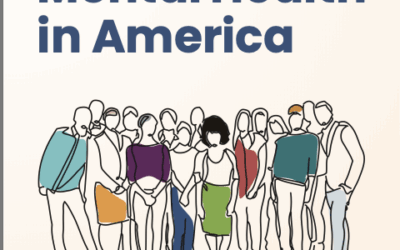Missed Opportunity to Reduce Incarceration for Mental Illness
We are very disappointed that Governor Youngkin vetoed HB267 and SB357 to Amend the Assault on a Protected Person Statute. His March 20th announcement grouped these vetoes with 20 others he believes will decrease public safety. Unfortunately, the Governor’s reasoning reflects a misreading of the bills and their intended impact.
Rather than decrease public safety, the bills would have improved public safety by removing vulnerable people from our criminal justice system who do not belong there.
The vetoes undermine the governor’s otherwise strong support for improving our mental health system. The bills would have supported those efforts. They went through extensive amendments to improve the language and address concerns from the law enforcement community. He could have reached out to Sen. Boysko or Del. Watts to amend the bills to address his concerns over definitions or procedures.
Currently, someone with a serious mental illness or intellectual/developmental disability faces felony charges if their behavior, in the midst of a mental health crisis, gets them arrested for assault against an officer. They are taken to jail and upon conviction receive a mandatory minimum 6-month jail sentence, and could get up to 5 years in prison.
What gets lost in cursory review is that most of the “assault” behavior charged under the current law does not result in bodily injury. 90% of these arrests are without injury to the officer or very minor injury. However, if there is any assault against the officer, no matter how minor, the person is charged with this felony assault. A family member who calls police for help ends up regretting that call for the rest of their life.
The current law doesn’t work for a mental health crisis:
- It doesn’t protect officers from assault.
- It doesn’t deter someone in a mental health crisis from exhibiting behavior they can’t control.
- It doesn’t help the person in crisis – In many cases it makes their illness worse.
Providing for an affirmative defense is an important step we can take towards a better system. The person in crisis could still be arrested, but the defense could stipulate the facts while presenting evidence that the behavior was caused by the individual’s illness, disorder, or disability. Courts could hear vital information about the defendant’s mental state and be able to find them not guilty. The defendant may spend less time in jail and connect sooner with appropriate treatment.
We encourage all parties to continue working on responses to a mental health crisis that exclude felony arrest and incarceration.



